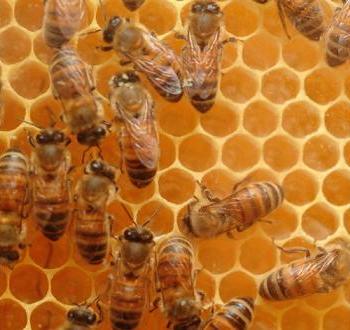A calculation made by the Ministry of Agriculture reveals that for every shekel of honey output, the bees produce over 20 shekels of output in pollinating vegetable and fruit crops
The contribution of the beekeeping industry in Israel is not only in the production of honey, but also - and mainly - in the pollination activity that the bees perform in the cultivation of vegetables and orchards. Without this pollination activity the flowers would not pollinate, and the fruits and vegetables would not form. The fruits and vegetables that depend on bees are watermelons, melons, avocados, almonds, deciduous and various herbs.
The importance of pollination by honeybees for agriculture and nature
The honey bee is the most important pollinating insect in world agriculture today. A long series of agricultural crops depend on pollination by the honey bee in order to obtain a crop on a commercial scale. It was found that the contribution of honey bees to agriculture is 60 times the value of the return received from honey production.
The crops that are pollinated by the honey bee: kiwi, apple, pear, plum, almond, cherry, gudgeon, avocado, pithi, lychee, melon, watermelon, zucchini, strawberry, sunflower, various seed crops. In almost all of these crops, the growers rent beehives to pollinate their crops. The contribution from the pollen is also to other crops in the environment and to wild plants in nature.
According to Simcha Yudovitch, Deputy Director of the Ministry of Agriculture and Chairman of the Honey Council, the value of production in the honey industry is about NIS 45 million per year at the price level for beekeepers. Considers that the value of the Ministry of Agriculture increases, because the value of the vegetable and fruit crops, which are made possible thanks to bee pollination, is over a billion shekels a year. That is, for every shekel of honey production, the bees generate a production of 20 shekels in the fruit and vegetable branches.
The CEO of Emek Hefer Apiary, Yoram Paz, said that the amazing data on the contribution of bees outside the honey industry make the industry a public good that the government must support. The construction boom, the construction of roads and the uprooting of orchards in the central region take a bite out of the bees' pastures every year. In addition to this, the spring period has been shortened in recent years and is interrupted by dry days, so that the bees are not able to store enough honey. According to Paz, the combination of these factors led to a dramatic decrease in the annual honey harvest. Paz: "Bees are a necessary part of agriculture in Israel, and the industry and those involved in it need to be protected. The return from the price of honey is not able to cover the high production costs in the industry."
On July 24, the Chairman of the Honey Council will pay a visit to the Emek Hefer apiary to deal with topics to help the bee industry. According to Yudovich, among the actions under review: participation in funding research to improve and promote the honey industry. In addition to this, the Ministry of Agriculture participates in the operations conducted for the branding of Israeli honey, improving its quality and setting standards for marking the honey.
Data on the honey industry in Israel: about 90,000 beehives scattered throughout the country; About 500 beekeepers are engaged in the industry. Pasture for bees: there are 6300 suitable points for placing beehives; About 40 beehives are placed at each grazing point; The bees produce about 45 kg of honey per hive per year. The honey bee in Israel is of an Italian variety (A. meliifera ligustica); Honey extraction is done mainly between the months of May and August; Israel consumes 3,600 tons of honey per year; About 60,000 beehives are placed in agricultural crops, for the purpose of pollination; Packaging and marketing: There are about 30 distributors. The beekeepers plant 100,000 nectar plants each year, with the assistance of KKL-Junk.
Drafting and editing: H. J. Glykasm, translations and technical writing

